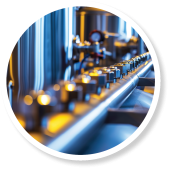https://doi.org/10.15255/KUI.2020.009
Published: Kem. Ind. 69 (11-12) (2020) 631–638
Paper reference number: KUI-09/2020
Paper type: Original scientific paper
Download paper:  PDF
PDF

The Influence of Ultrasound Cavitation on the Process of Degradation of Organic Substances in Wastewater of Pharmaceutical Production
U. Vashkurak, L. Shevchuk, I. Aftanaziv and A. Romaniv
Abstract
The influence of ultrasound cavitation in the atmosphere of different gases, namely oxygen, air, and nitrogen, on the destruction of impurities of butanol and ethanol found in wastewater from the pharmaceutical plant “Galichpharm” was investigated. The effect of the corresponding gases (oxygen, nitrogen, and air) without ultrasound cavitation on the destruction of ethanol and butanol impurities in wastewater was comparatively investigated. The degree of oxidation of organic matter, effective rate constants, and approximation coefficients were calculated. It was found that the air supply is the least effective for both ethanol and butanol impurities. Degradation of ethanol by air contributed to the reduction in the organic matter content by 14.6 %, while oxidation of butanol was not observed. Ultrasound cavitation enhanced the effect of air and in common action with air the ethanol impurity content reduced by 32.58 %, and butanol impurity by 4.05 %. Nitrogen bubbling produced mediocre results for the destruction of ethanol and butanol impurities giving a decrease by 17.04 % and 0.67 %, respectively. The highest results were obtained with oxygen. Ethanol impurities decreased by 22.47 % and butanol impurities by 1.75 %. With the common action of oxygen and ultrasound, much higher results were obtained, 44.32 % for ethanol impurities and 7.43 % for butanol impurities.

This work is licensed under a Creative Commons Attribution 4.0 International License
Keywords
wastewater, ultrasound cavitation, pharmaceutical industry, butanol, ethanol, chemical oxygen demand









